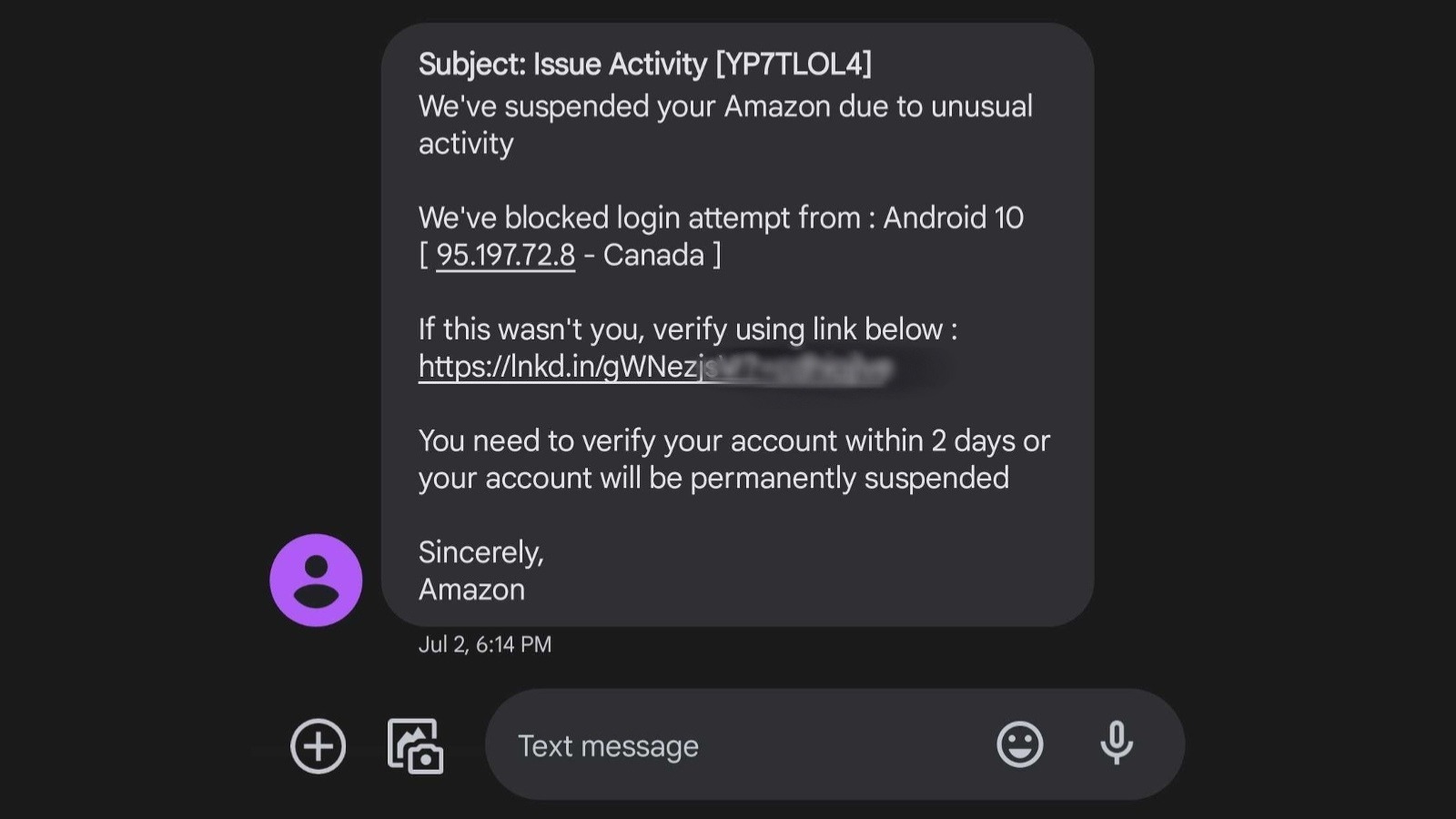

Watch Out For These Fake Amazon Scams This Holiday Season
source link: https://www.slashgear.com/1145672/watch-out-for-these-fake-amazon-scams-this-holiday-season/
Go to the source link to view the article. You can view the picture content, updated content and better typesetting reading experience. If the link is broken, please click the button below to view the snapshot at that time.

Watch Out For These Fake Amazon Scams This Holiday Season

We may receive a commission on purchases made from links.
'Tis the season of online shopping and the many online scams that go along with it. Amazon has warned its customers that scammers are out in full force this holiday season, using a variety of phishing methods to steal names, addresses, account credentials, and banking information from unsuspecting consumers who shop on the internet retail giant's platform.
Online scams aren't a new thing, and they're certainly not limited to just Amazon, of course. The Federal Trade Commission (FTC) says on its website, for example, that it received 2.8 million fraud reports from consumers in 2021, with online shopping scams having been the second-most-popular way of targeting victims. Consumers collectively lost $5.8 billion due to these scams, representing an astronomical 70% increase over 2020, according to the agency.
Amazon is attempting to preemptively protect its customers from these scammers by detailing the kinds of scams it is seeing in circulation and the ways you can spot them to avoid becoming the victim of a phishing attack.
Phishing texts and emails dominate Amazon scams

In a blog post, Amazon explains that scammers are impersonating communications from the company, doing so using both email and text messages that may contain Amazon's logo or links to phishing websites designed to look like an Amazon web page. According to the company, the majority of scam messages it saw throughout 2022 were sent in the form of fake order confirmations.

Fake order confirmations often arrive as an email or text message seemingly from Amazon that says you bought something — usually an expensive item like a TV. The message may encourage you to click a link to cancel the order if you didn't make the purchase, but that's where the trap lies: the link will take you to a fake website where you will be prompted to enter sensitive details like banking info, a social security number, or your Amazon login credentials.
Rather than submitting the information to Amazon, the details are sent directly to the scammers, who may then use them to make purchases through your Amazon account, access your other accounts, or they may sell the information on the dark web for identity theft purposes. In some cases, Amazon says fraud victims have been coerced into buying gift cards as part of the impersonation scam; in other cases, they may receive a robocall from someone pretending to be a customer service representative.
Amazon explains how to protect yourself from scammers

Avoiding Amazon impersonation scams is simple when you know what to look for and what kinds of methods the company uses to reach out to its customers. For example, Amazon says it will never ask one of its customers to buy a gift card, which means any request to do so will always be the result of a scammer. As well, the company says that messages or calls that create a sense of urgency are likely scams and that it doesn't take payments from customers via email or phone calls.
If you receive a text, email, or call about an Amazon purchase you don't remember making, the company says you should use its official app or website to log in to your account, where you can check recent orders to see whether the message was legitimate. As well, both the app and website provide multiple ways to contact Amazon's customer service, which can verify whether the message you received was authentic. Avoid using any phone numbers included in the suspicious email or text, as that may result in calling the scammers, who will pretend to be Amazon employees.
Beyond that, Amazon advises its customers to follow the same common-sense rules you'd use to avoid any phishing scam, and also to leverage third-party resources to stay informed about what scammers are up to. One such resource is called Scam Tracker, which is the result of a partnership between Amazon and the Better Business Bureau. Likewise, the FTC maintains a page that details, among other things, the kinds of impersonation scams that have appeared in the latest fraud reports. AARP also has a database that shows scams that have been reported in specific parts of the U.S., including reports of online fraud.
Recommend
About Joyk
Aggregate valuable and interesting links.
Joyk means Joy of geeK